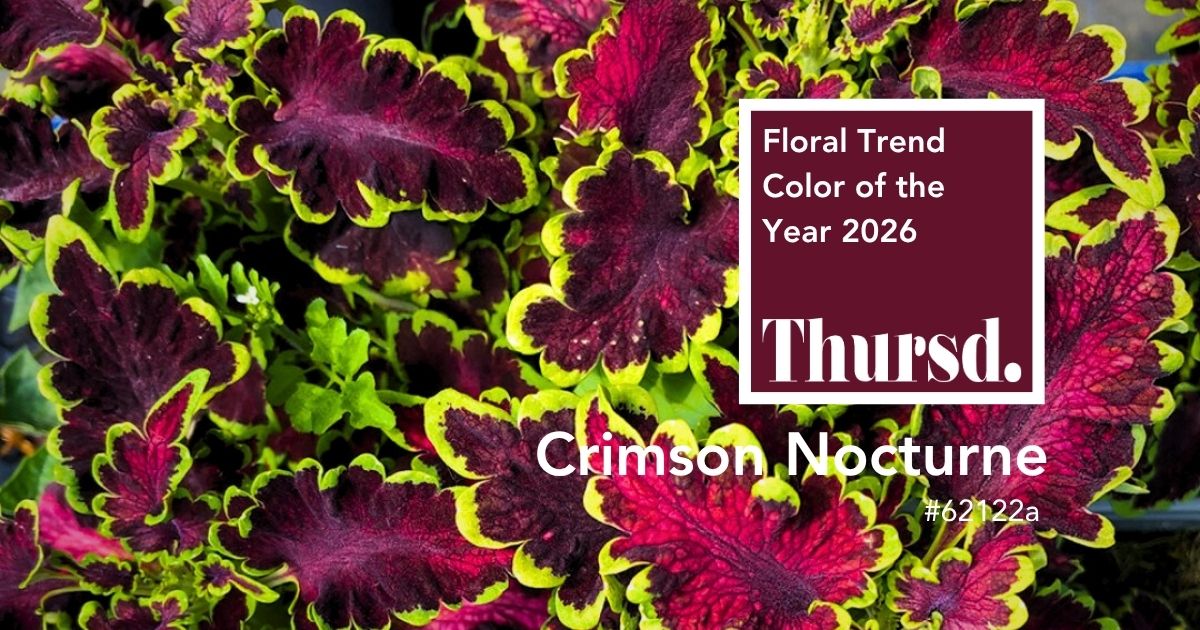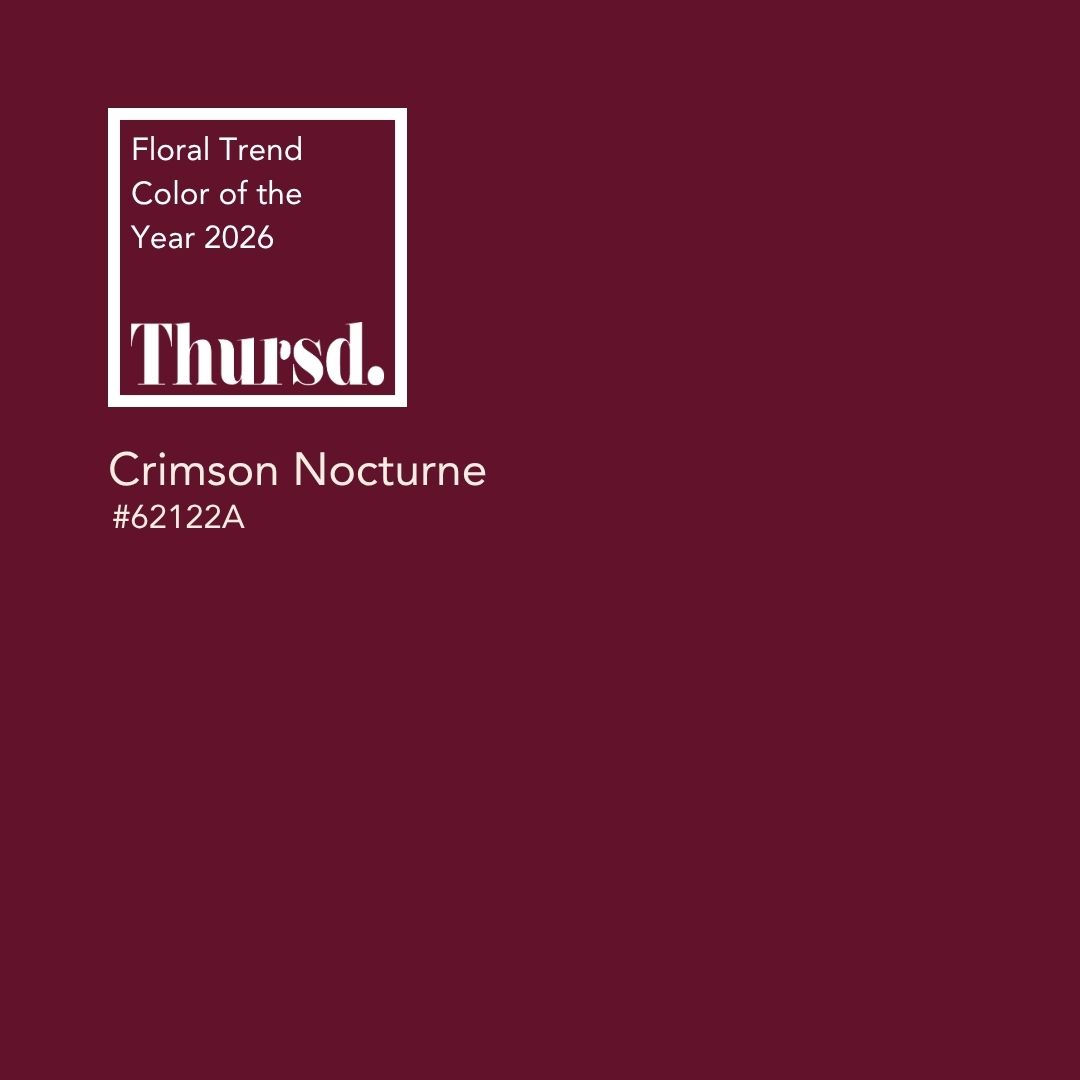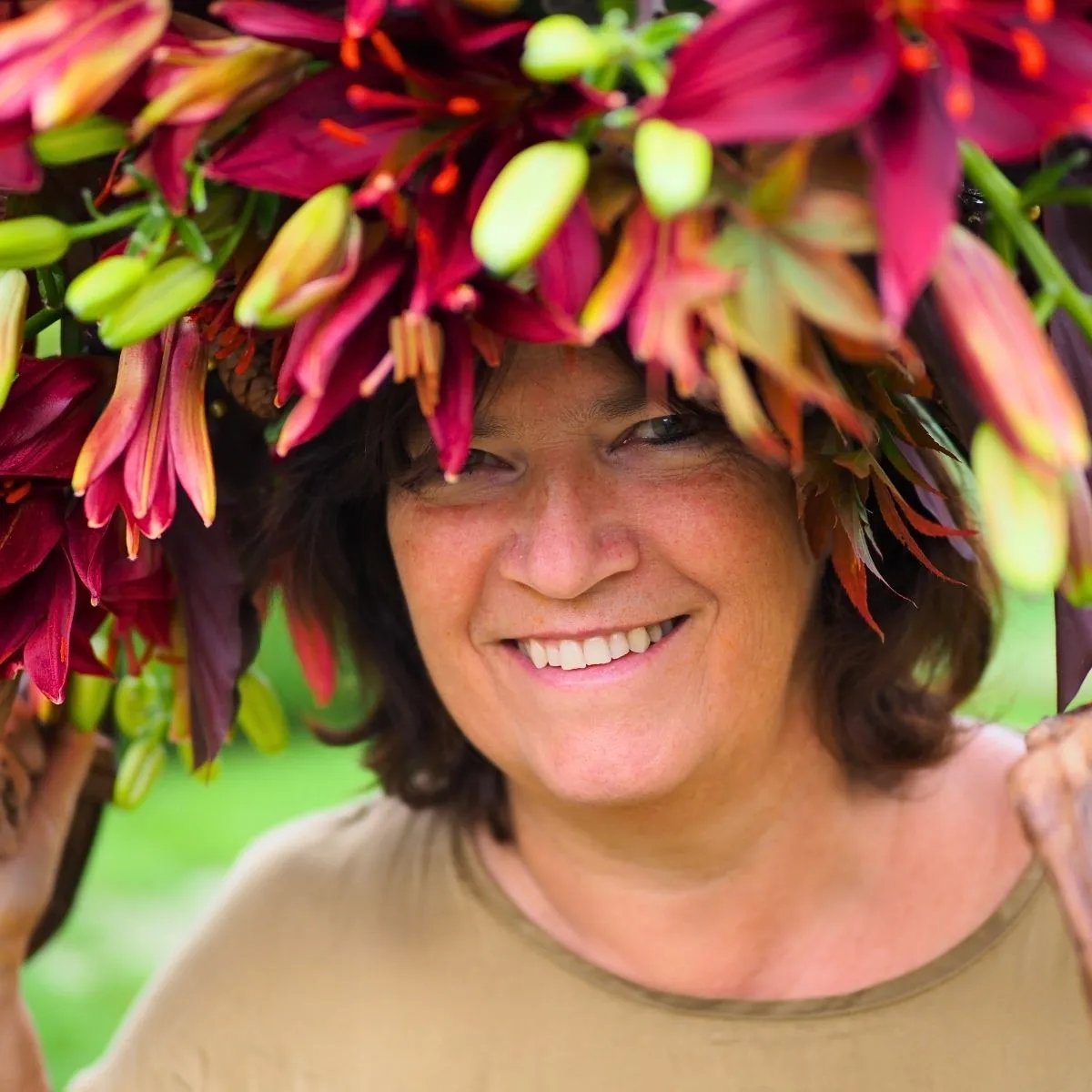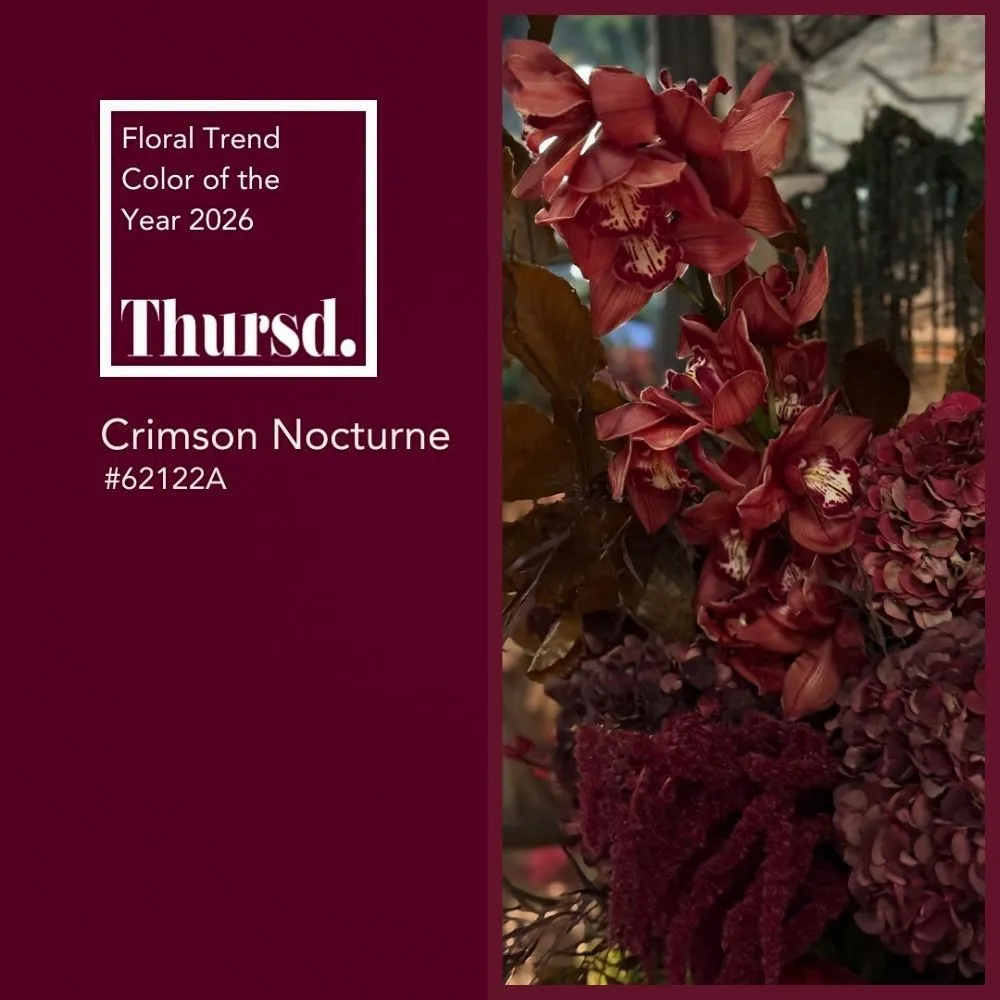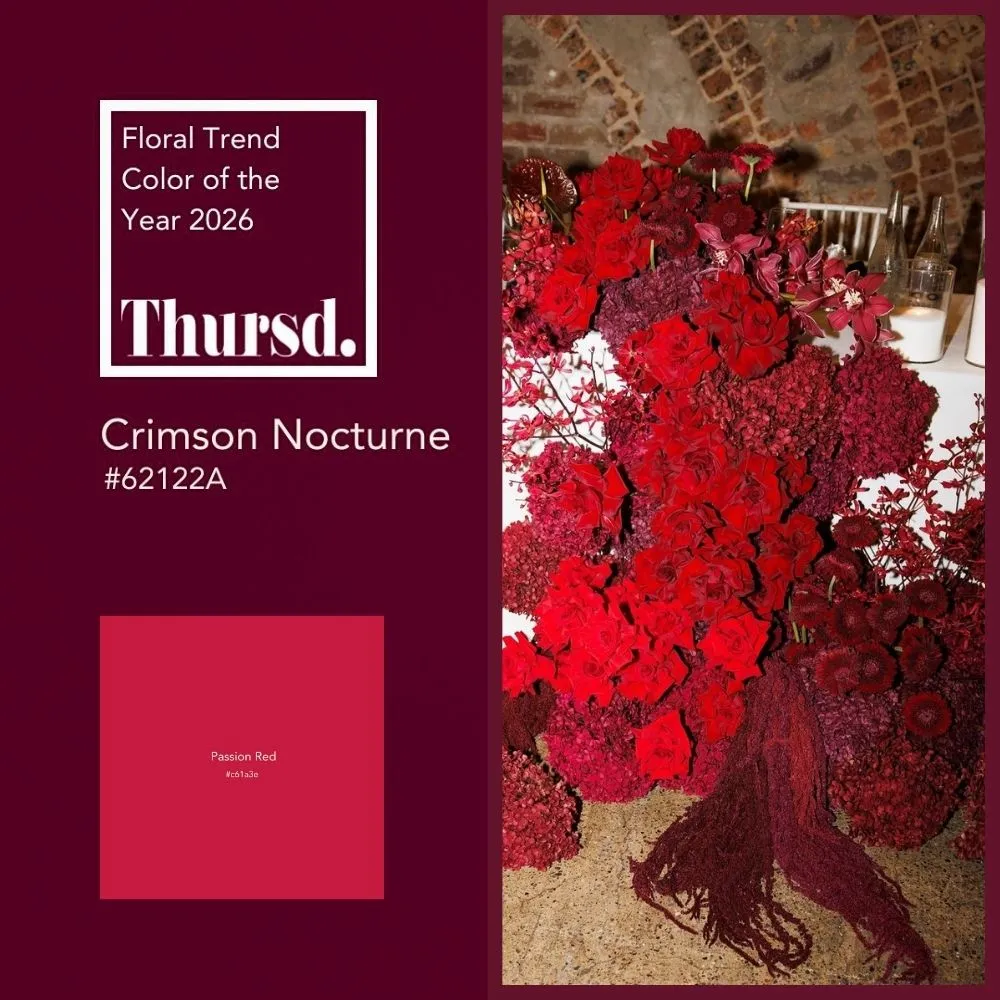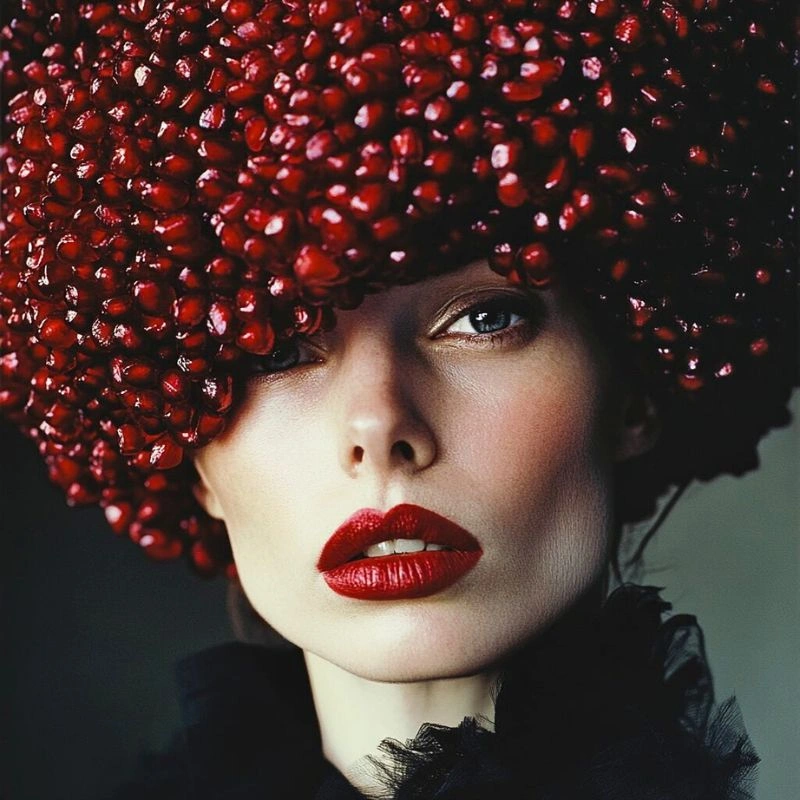There is something oddly satisfying about a plant that does not quite follow the rules. While most foliage silently resigns to its supporting roles for flowers, Coleus (Plectranthus scutellarioides) prefers to be in the limelight. Its leaves are boldly colored, in a range of greens, reds, yellows, pinks, and purples, that they outshine some of the most colorful flowers.
Coleus has, among its colorful varieties, a subset that seems painted by the same minds that conjured up 2026's Floral Trend Color, Crimson Nocturne, a palette of shades that ground us warmly, wrapped in velvet shadows and quiet fire. It blends passion with the depth of night. Its passionate tones meet shadowy hues, just like Coleus is veiled in mystique.
In Coleus, Nature Speaks in Rich Colors
Often affectionately called the painter’s plant, Coleus displays its colors. It does not just wear them. Almost certainly, one will always find themself drawn to those varieties whose burgundy bleeds into near-black, where deep crimson veins trace patterns against darker leaves that seem to absorb light instead of reflecting it. These varieties define what Crimson Nocturne is all about. It embodies a subtle balance between bold and mysterious, yet beautiful all the same.
Belonging to the mint family (Lamiaceae), Coleus is related to familiar herbs like mint, basil, and sage. The plant’s origins trace back to Southeast Asia and parts of Africa, where its vibrant leaves first caught attention. Though it may resemble a stinging nettle at first glance, this beauty is completely harmless. Richplant is one of the dedicated growers of Decorum Flowers and Plants, bringing this colorful wonder to life, making sure every leaf shines with its unique expression of nature’s artistry.
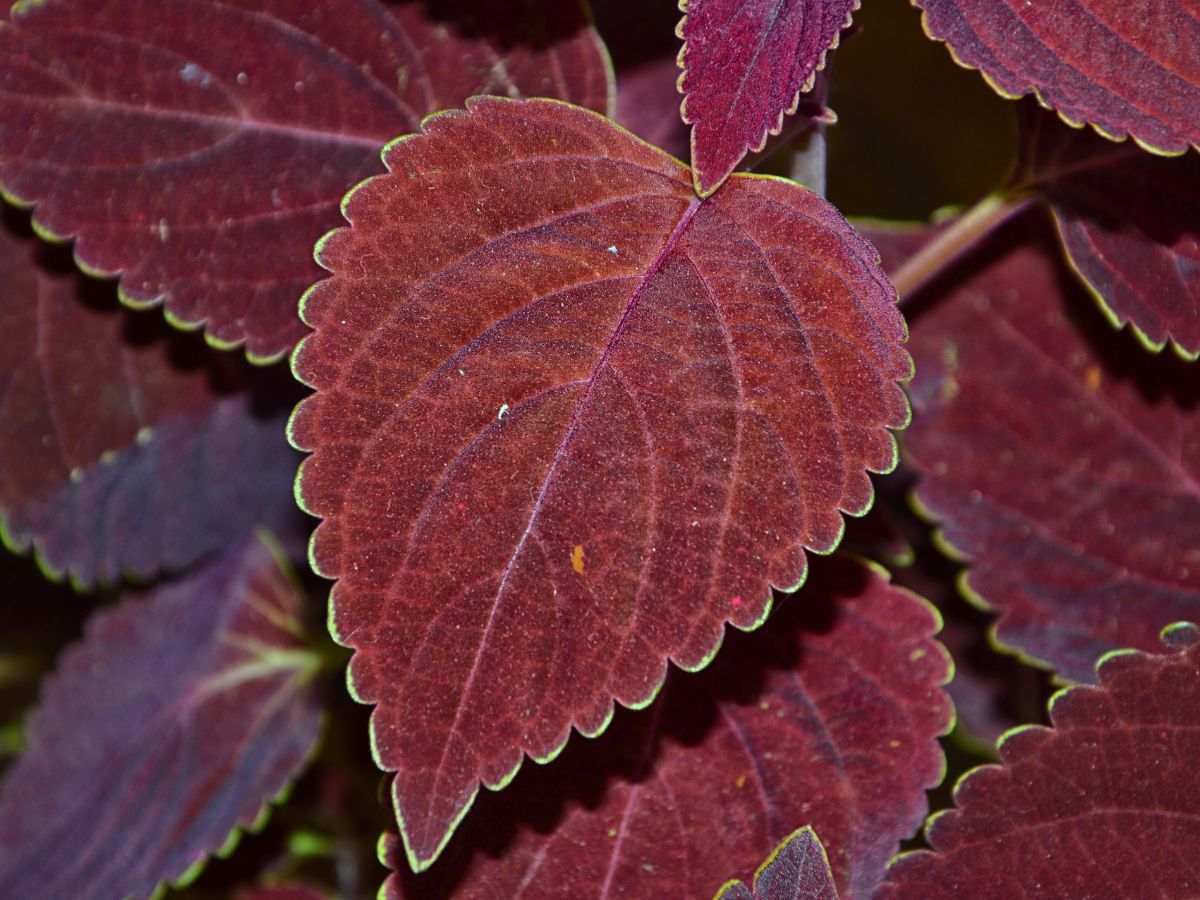
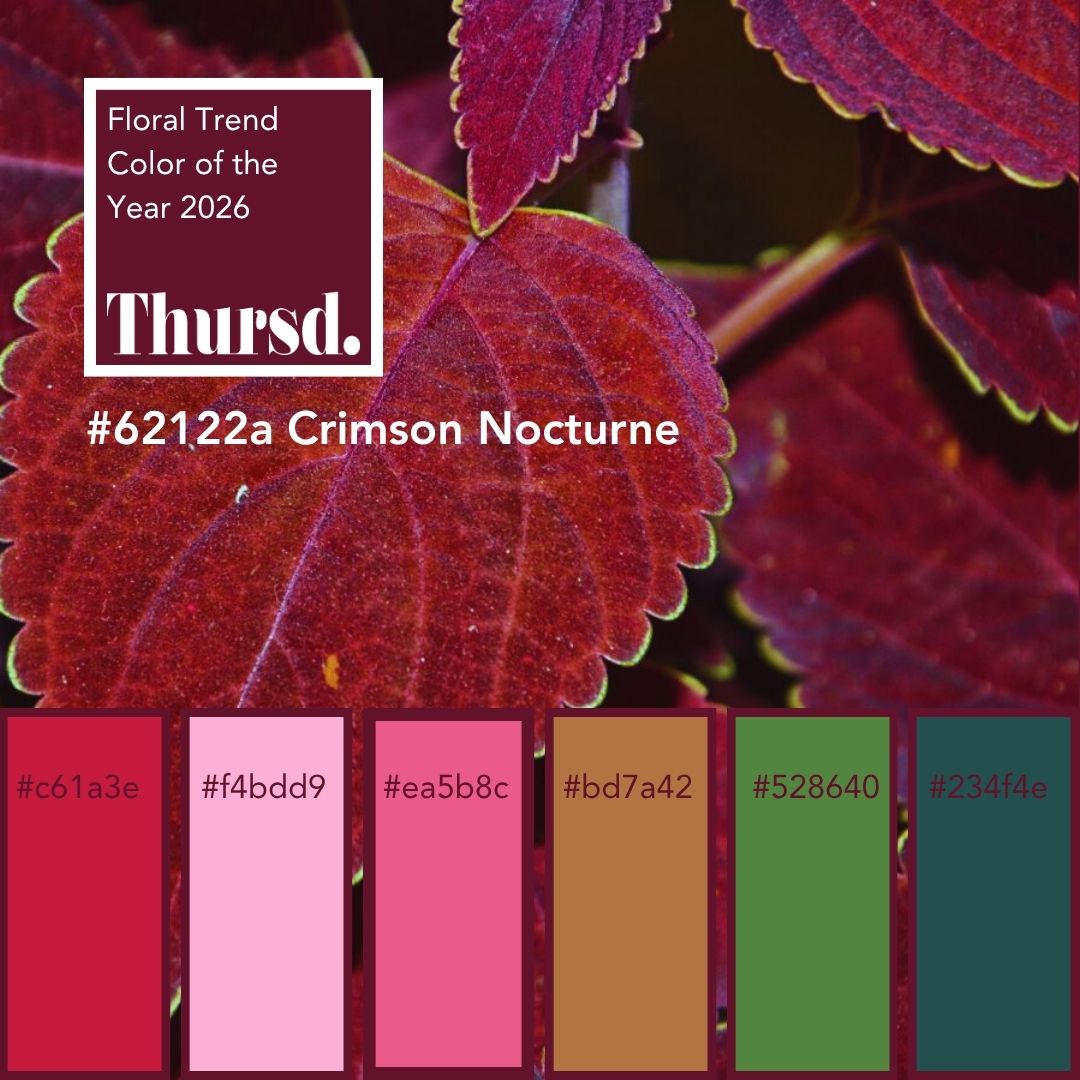
Coleus does not strictly belong to any floral category of restraint. In its leaves, it balances a riotous energy of red, magenta, and chartreuse with subtle undertones of smoky umber, almost the same chromatic rhythm that defines Crimson Nocturne. It understands contrast. The brightness of passion meets the cool composure of the night.
How both the plant and its color palette handle drama is also impressive. Crimson Nocturne hardly shouts for attention, but rather draws one closer with its velvety reds and then surprises with shadowy depths. Coleus does the same. From a distance, you might catch its flash of burgundy or wine-red, but when you step closer, you notice more: edges that darken to near-black, centers that glow with a deeper cherry, perhaps even subtle touches of lighter tones that catch the sun’s light.
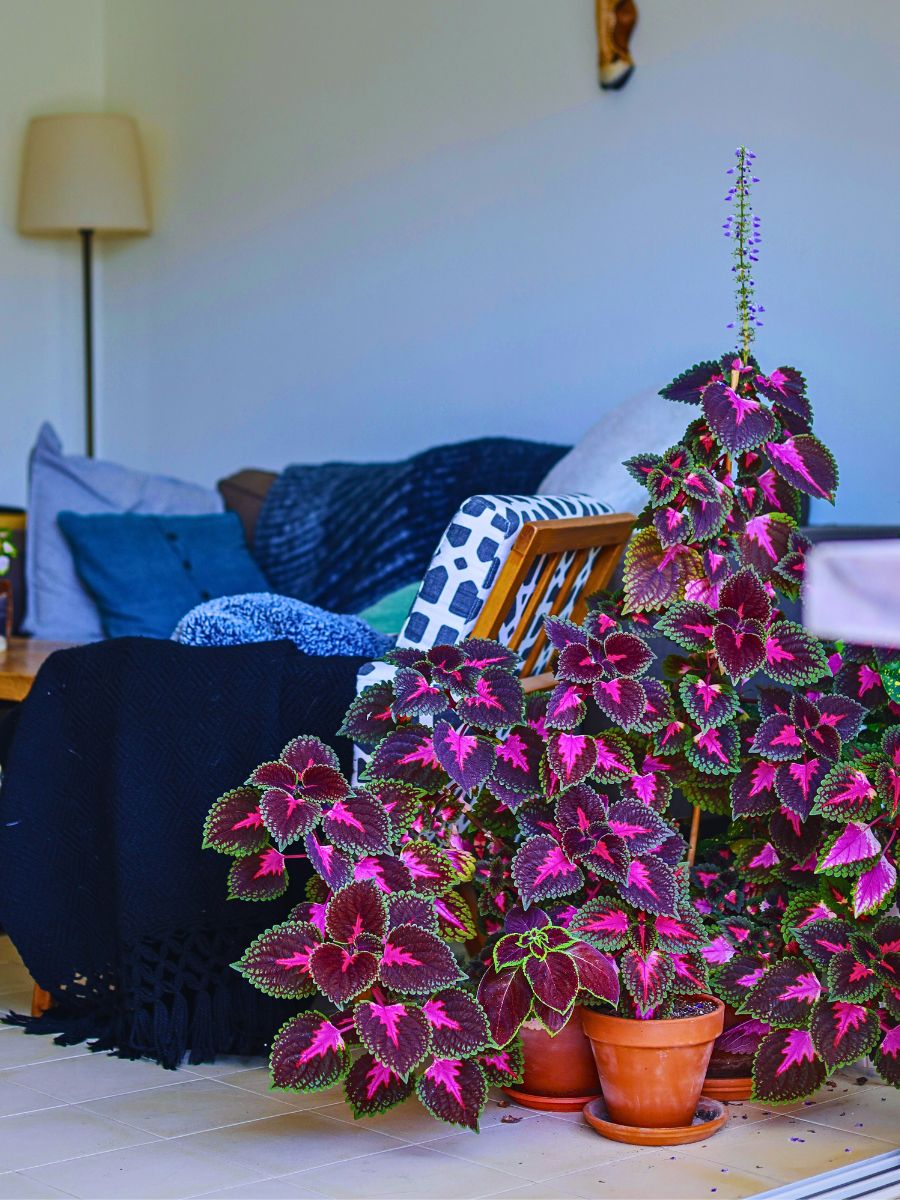
What Is The Top 3 Coleus Closest to the Thursd Floral Trend Color 2026?
- Dipt in Wine: crimson leaves with a lime-green edge.
- Black Dragon: deep red centre and purplish-black edges.
- Chocolate Covered Cherry: cherry red centre surrounded by mahogany/brown and lime-green edge.
Emotional Resonance of the Palette
There is a reason why Crimson Nocturne feels simultaneously romantic and strong, or sweet and deep. It hardly picks sides between passion and mystery. It insists on both. In its darker red incarnations, Coleus carries this same emotional dexterity. It is bold enough to command attention but nuanced enough to fit into elegant settings. It can anchor a tropical-themed container garden or add depth to a more refined shade border.
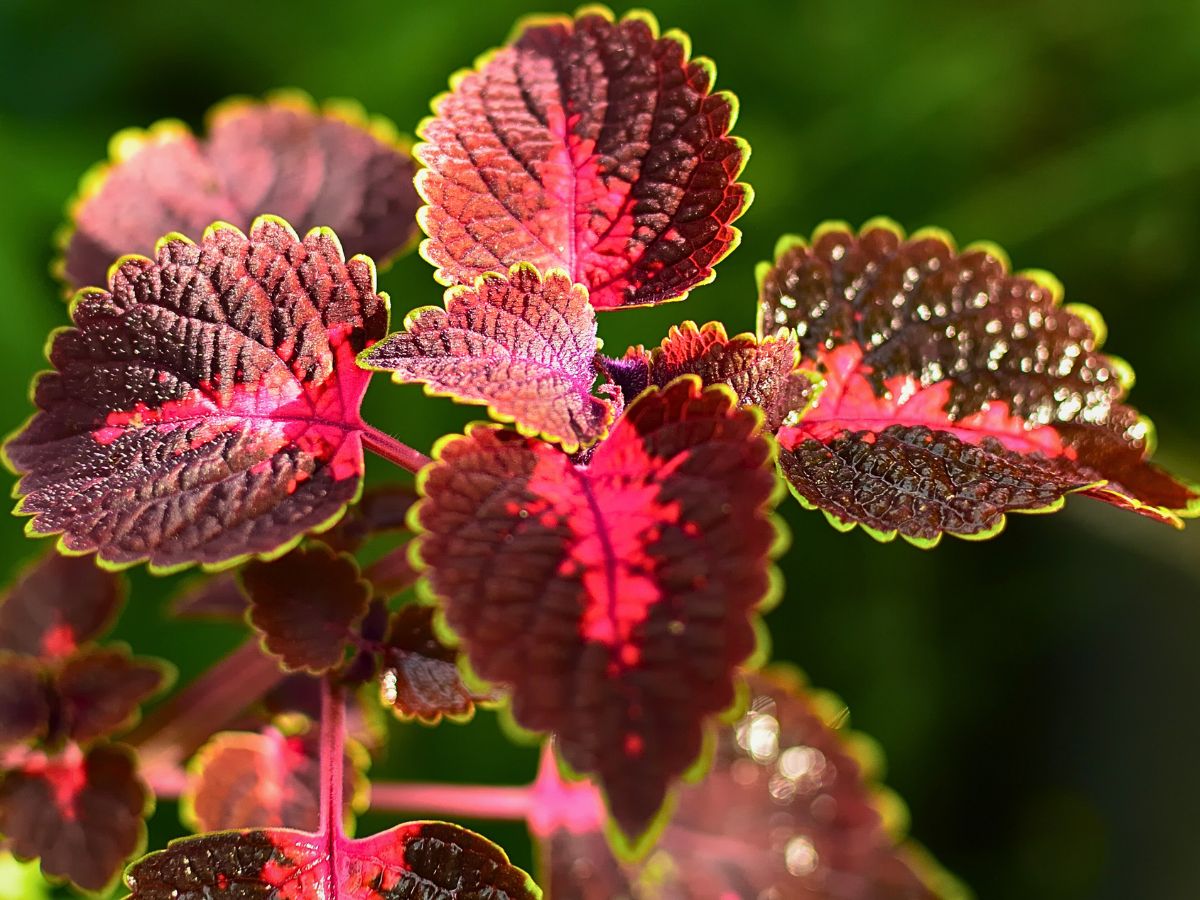
This is what makes both the plant and the palette versatile. You want to create a moody, atmospheric corner in your garden? Mass several deep-colored Coleus varieties together and watch how they seem to intensify in the evening light. You’re looking for something to add drama to a container arrangement? An aptly colored Coleus provides the perfect balance of structure and color without overwhelming companion plants.
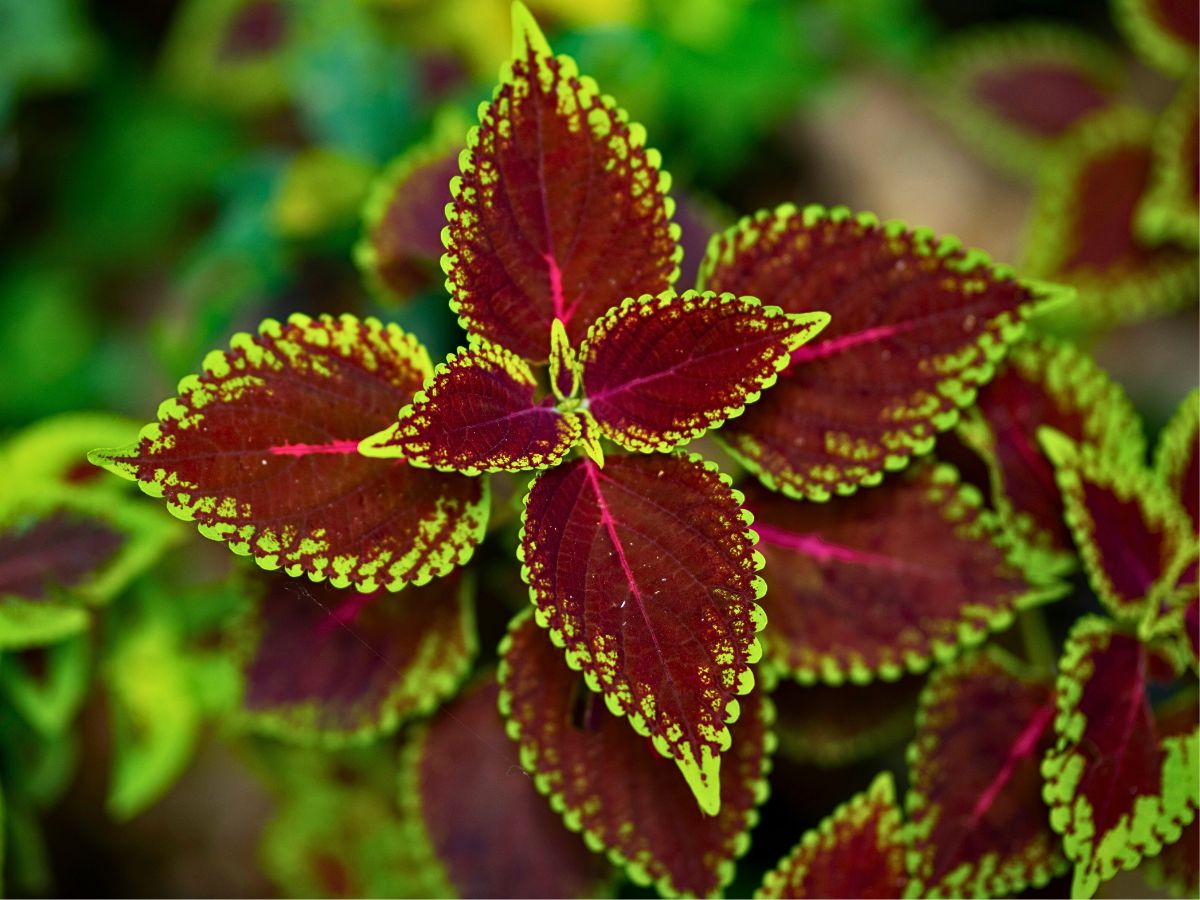
Masters of Contrast When It Comes to Darkness and Light
Both Coleus and Crimson Nocturne are masters of contrast. The color palette pairs its passionate reds with the depth of night, deep shadows that create context for the warmer and lighter tones. Without that darkness, the crimson would lose its power. Without those touches of light, the composition would feel heavier than balanced.
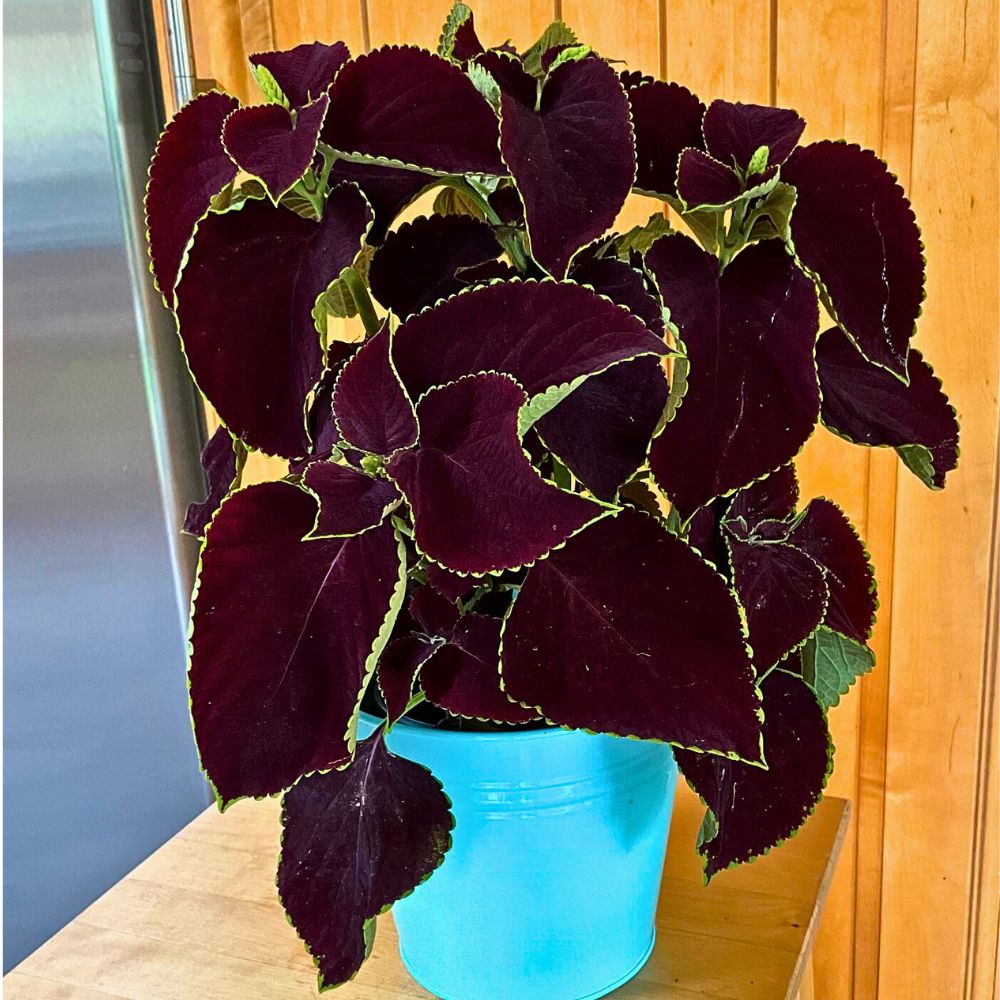
Coleus leaves operate on nearly the same principle. Its darker varieties, particularly those bred for deep red coloration, often feature leaves where the deepest burgundy is bordered by edges that seem to create a natural frame, much like how Crimson Nocturne gives its tones definition. And just as the color palette incorporates slight touches of guiding light, several Coleus varieties feature lighter veining or subtle variegation that catches the light, creating a similar sense of luminosity within the darkness.
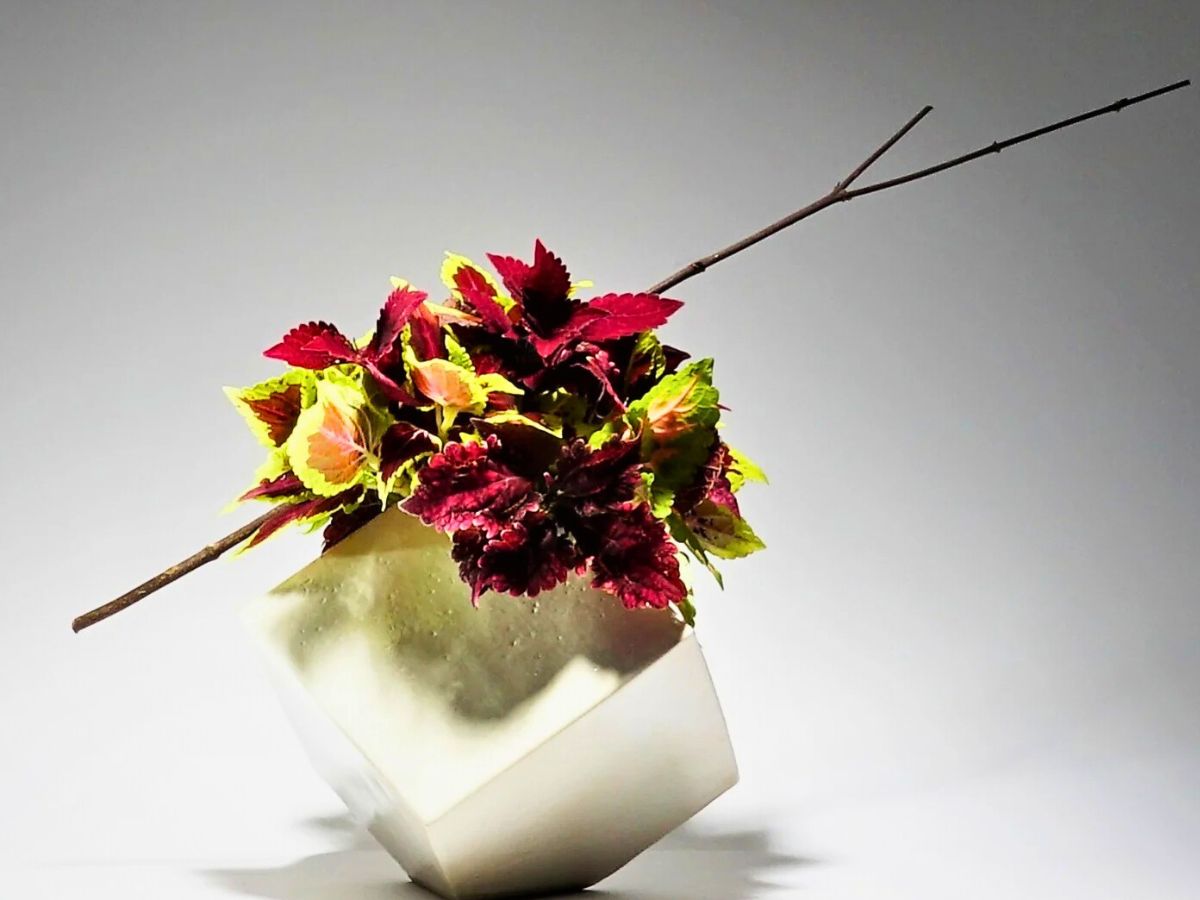
Still, yet, its depth of tone gives Coleus a curious demeanor. It is both approachable and enigmatic. It does not demand admiration but magnetizes it. Observing it at different times of day feels like watching a twilight sky make peace with the last trace of sunlight. Plus, the leaves, velvety and soft to touch, resemble the tactile warmth of aged velvet robes or perhaps dried rose petals kept in an old book. In this seeming imperfection, there is grace.
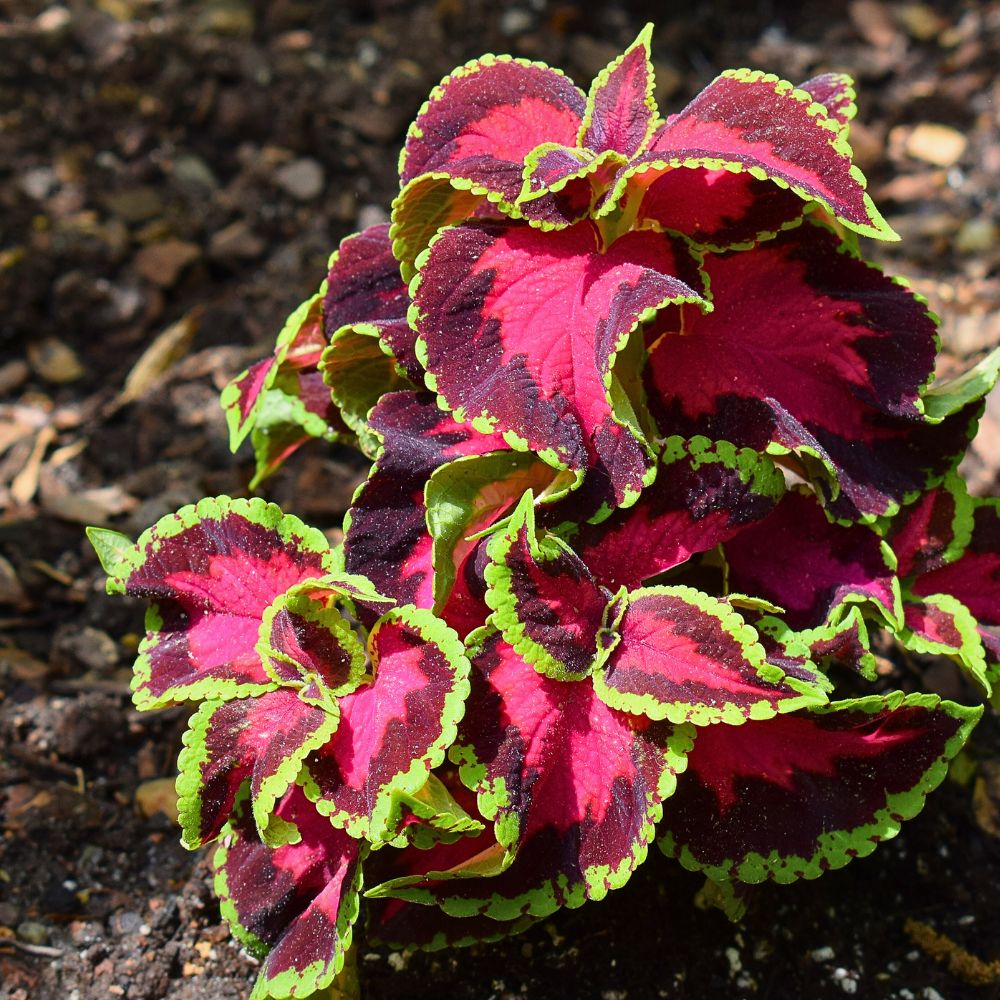
How Coleus Brings Crimson Nocturne Into the Garden and Home
The beauty of recognizing this connection between plant and palette is that it opens up possibilities for creativity. Once you see how the Coleus embodies Crimson Nocturne, you can use that understanding to compose entire spaces, both in the garden and elsewhere, because the Crimson Nocturne palette conjures images of passion tempered by thought, or warmth restrained by nightfall. When this sensibility takes root in a garden, there takes place a harmony or chemistry between pigment and personality.

Varieties like Coleus Black Dragon, Coleus Burgundy Sun, Coleus scutellarioides Black Prince, Coleus Inky Fingers, Coleus Wizard Scarlet, and Coleus Miana, among others, all together typify the color theory of Crimson Nocturne in a garden design set, deep crimson as the heart, purplish shadows offering gravity, and maybe even a glimmer of light-colored foliage. Each of these varieties captures different aspects of the Crimson Nocturne palette, and mixing several creates a layered, intricate effect that makes the color scheme so mysteriously charming.
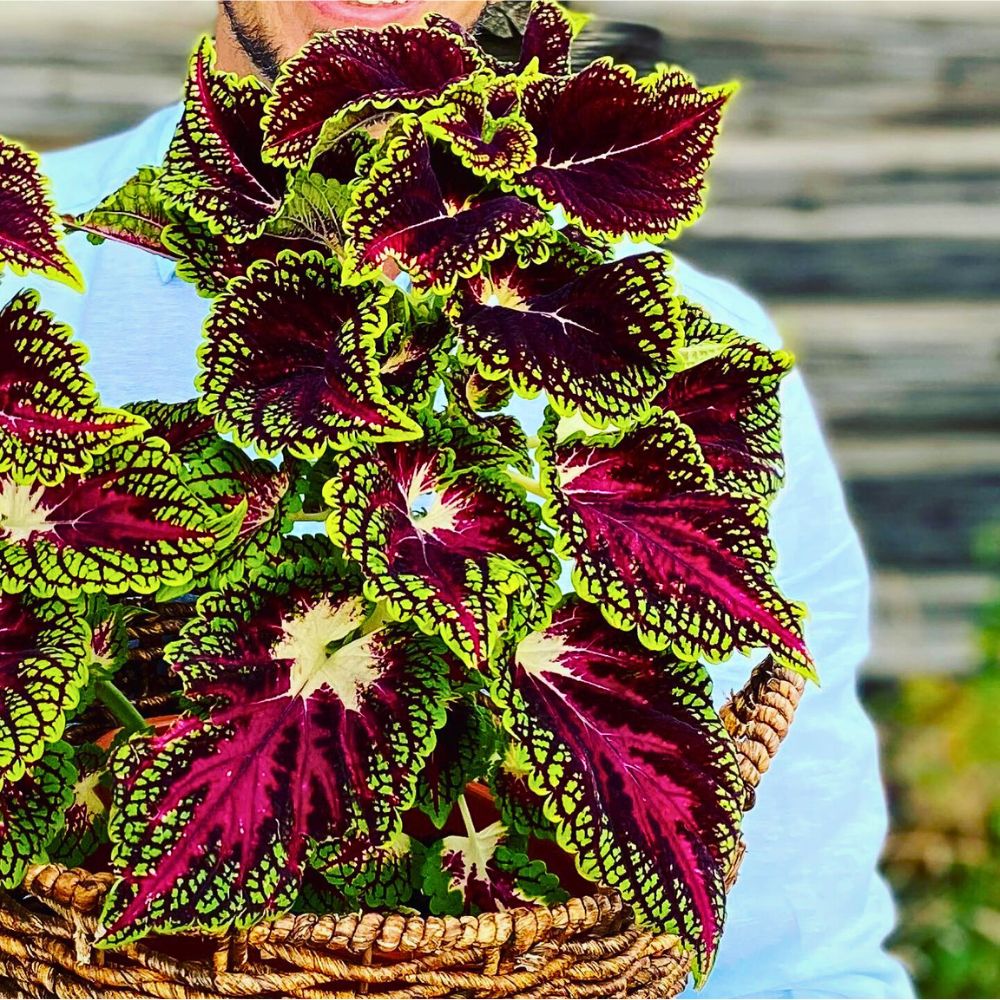
The scene they produce is quite cinematic. You’d half expect an old jazz tune to be playing in the background, perhaps the faint rustle of night leaves in place of applause. Here is where Coleus thrives best: in filtered light that almost mimics the tone of dusk with a touch of burgundy. While it can handle some sun, it does best in partial shade, isn't that fitting? A plant that naturally channels nocturnal mystery prefers gentle twilight, early dawn light, or dappled afternoon shade.
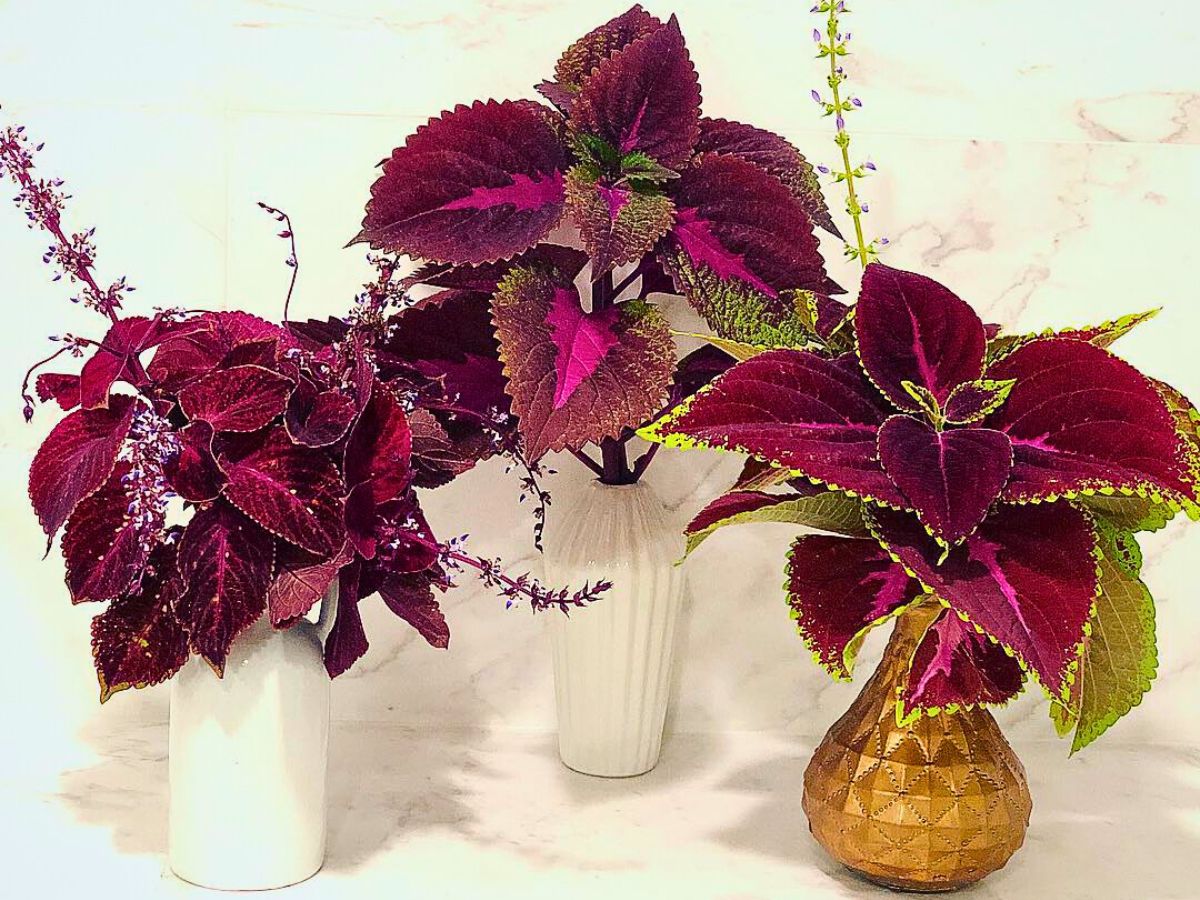
In these settings, its crimson deepens, and the plant does not lose any of its charm; it perhaps even gains some quiet boldness. Early morning light reveals one personality. Afternoon shade, another. And by evening, the plant feels wholly in sync with the palette’s theme: Elegant, whimsical, and warmly defiant.
Growing it, perhaps, pair Coleus with others that echo other elements of the palette. Think deep purple Alternanthera for those shadow tones, deep purple sweet potato vines like Sweet Georgia, or perhaps some deep burgundy fountain grass to add movement. Include other lighter varieties for contrast.
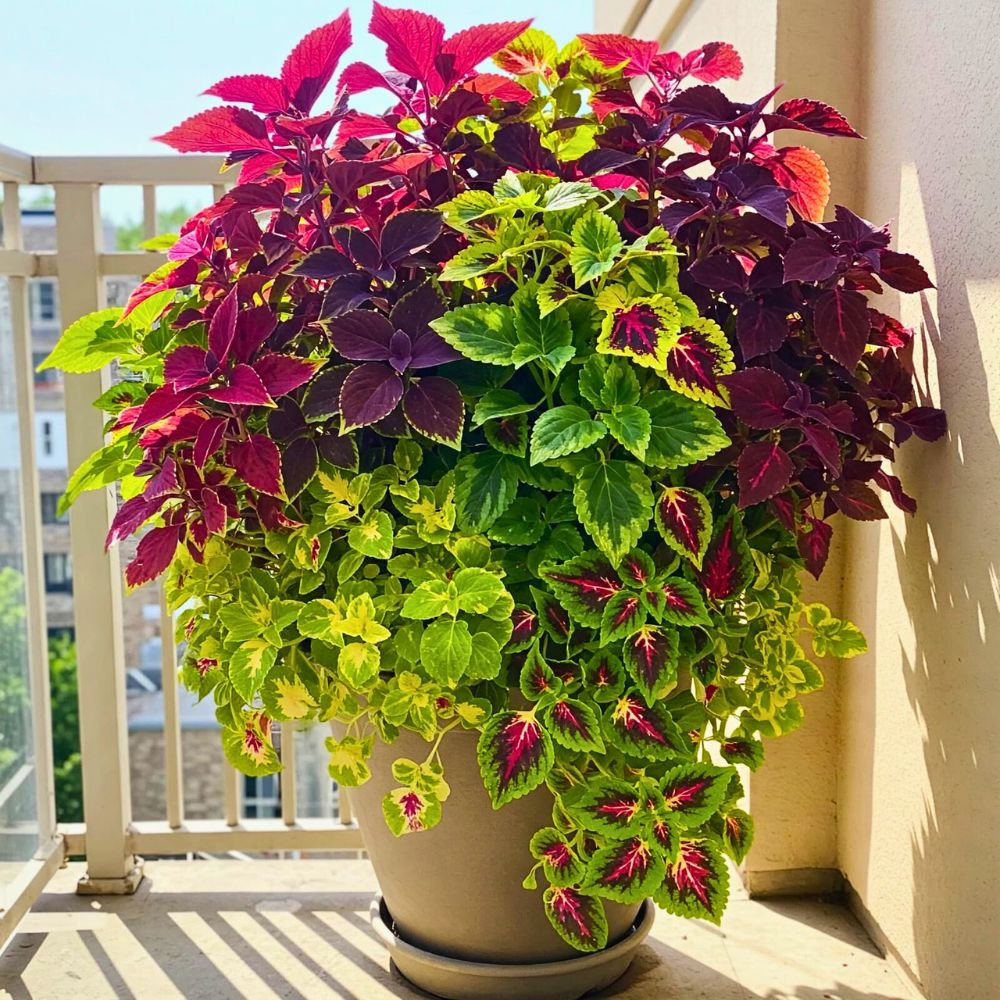
Not to be confined to just the outdoors, Coleus also happily thrives in shaded porches, rooms, or windowsills where filtered sunlight plays on its foliage. Indoors, it creates a sort of sculptured painting and a companion all-in-one. Its leaves are conversation-starters; the kind that begins with, “What a color!,” and ends in musings about the palette.
To crown it all, Coleus care is easy. Just keep the soil consistently moist but not waterlogged, pinch back the growing tips to encourage bushier growth, and remove any flower spikes that appear. And yes, Coleus does flower, but those small, inconspicuous flowers are honestly quite a distraction from the main show of the stunning leaves!
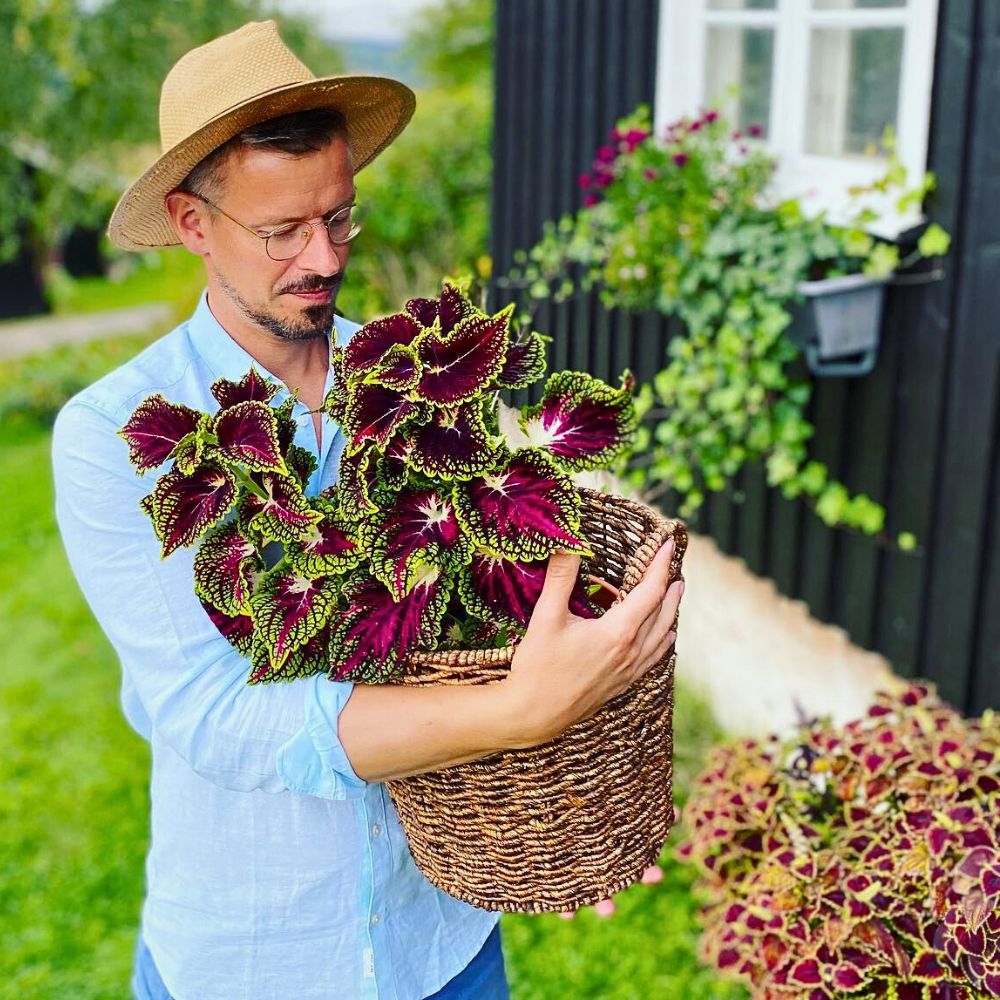
Also, as it grows and fills out, Coleus creates its own internal color variation landscape. The newer growth at the top might catch more light, displaying hints of cherry and wine, while the lower, more established leaves settle into deeper burgundy-black tones. Such is the natural gradation within a single plant, mirroring the palette’s colors, building from subtlety to utter mystery.
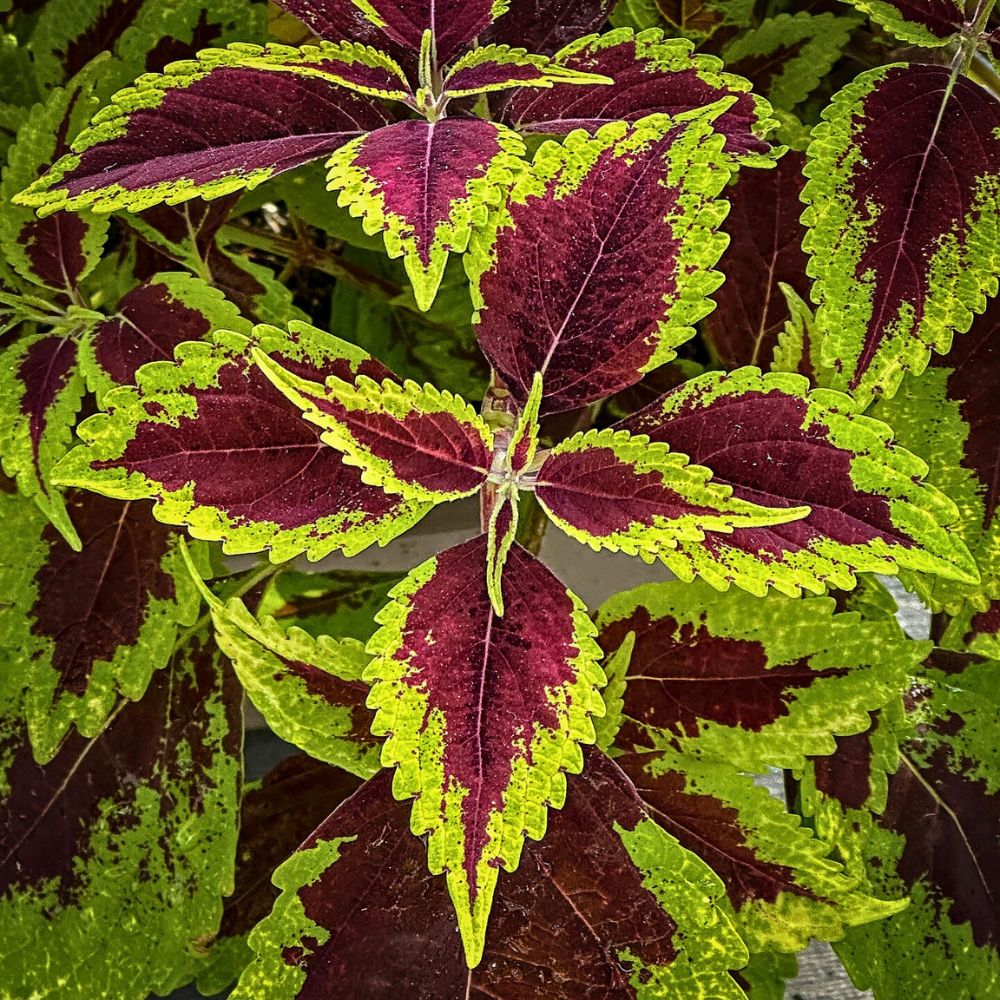
Crimson Nocturne Outside of Gardening
Knowing how Coleus embodies the palette can inform interior design choices, textile selections, and even artwork. The key is recognizing that both are about balance, never letting the darkness overwhelm the warmth, nor allowing the brightness to diminish the depth. Think about how you might style a room inspired by this relationship. Quite like deep burgundy textiles with subtle sheen, dark wooden furniture that provides structure, and touches of subtly warm umber in fixtures or accessories.
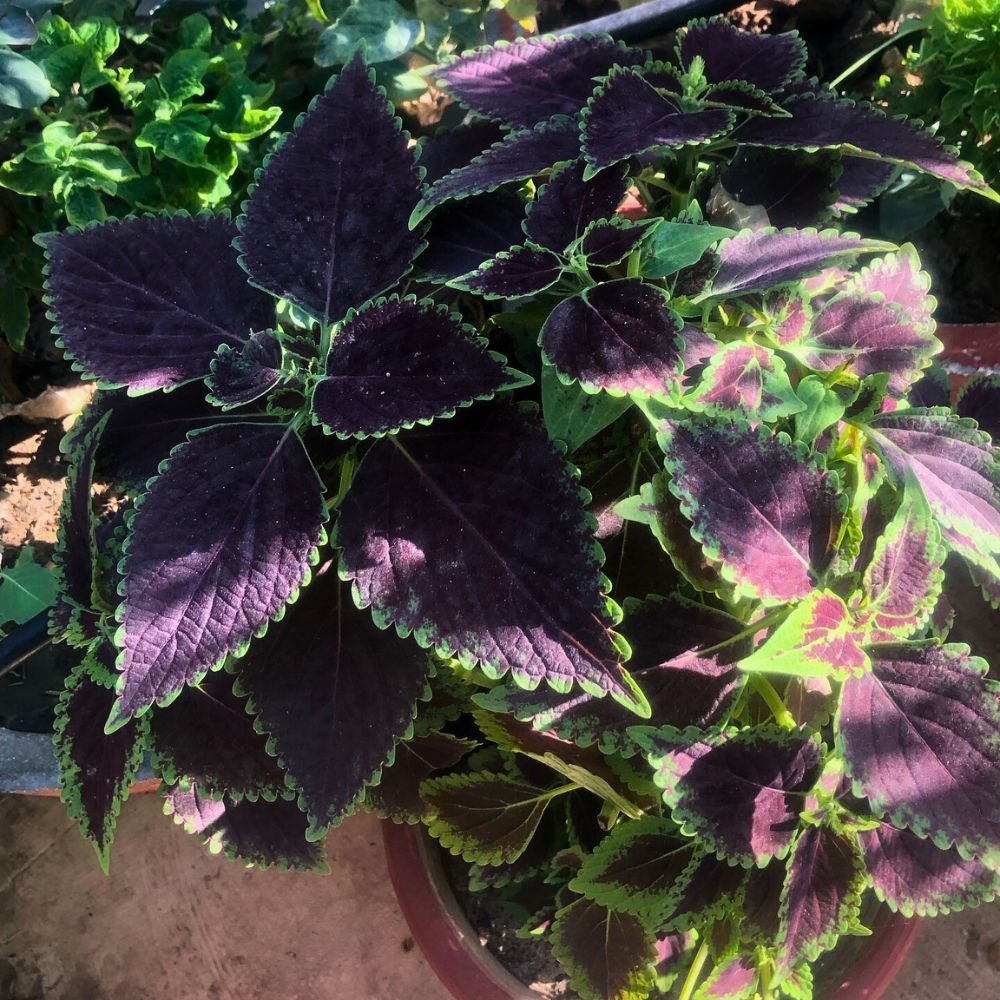
Or consider how a photographer may capture the Coleus, playing with shadow and light to emphasize the qualities that make Crimson Nocturne so mysterious. Whichever the case, in Coleus, this trend color palette finds perfect balance.
.jpg)
Feature image by Mor Shani. Header image by @kv_naushad.

